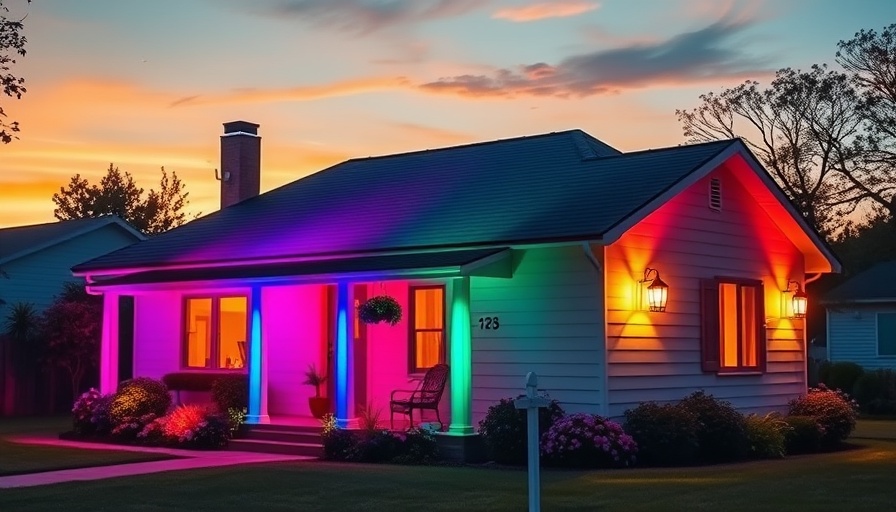
Nowhere to Hide: The Impact of Hate on Community Expression
The story of the Riggs family in Houston's Westbury neighborhood highlights a troubling trend where expressions of love and acceptance are met with hostility. Jordanna Riggs and her family had hoped to instill values of inclusivity in their children through their vibrant rainbow pride lights. The lights not only symbolize acceptance of the LGBTQ+ community but also serve as a testament to the family's commitment to creating a warm and welcoming environment. Unfortunately, these symbols have become targets of vandalism, as an unidentified assailant cut the family's pride lights not once, but twice.
Defying Hate with Unity: Community Response
The Riggs family's experience resonates deeply within communities striving to foster equality. After the initial act of vandalism, social media responses poured in, showcasing a wave of support for the Riggs family. Many people unconditionally expressed their anger over this act of hatred, reiterating that such gestures of expression should not only be tolerated but celebrated. The community's solidarity, featuring those who even offered to help cover the repair costs, underscores an essential narrative: love and acceptance can be louder and more resilient than hate.
Behind the Numbers: Vandalism Against LGBTQ+ Symbols
Vandalism against LGBTQ+ symbols is not an isolated incident. In recent years, there has been an uptick in acts of vandalism and hate crimes targeting LGBTQ+ people across the United States. According to the FBI's Hate Crime Statistics report, LGBTQ+ individuals continue to experience disproportionate rates of targeted offenses. In 2020 alone, hate crimes against LGBTQ+ people made up nearly 20% of reported hate crimes nationwide. This stark reality illustrates that though there are advances in societal acceptance, there is still a significant amount of work to be done to combat intolerance.
Creating Solutions: What Can Communities Do?
Addressing the issue of hate-fueled vandalism requires collective action. Community leaders and local officials can play critical roles in creating safer environments. Initiatives could include educational programs in schools about diversity and acceptance, as well as community workshops promoting understanding of the LGBTQ+ community's contributions. Law enforcement agencies can also prioritize swift and fair investigations into hate crimes to deter future offenders. Each effort aimed at fostering compassion can potentially reduce instances of vandalism and discrimination.
The Larger Conversation: Why Celebrating Pride Matters
Celebration of pride through symbols like the rainbow lights goes beyond a personal expression; it contributes to a broader cultural discourse about acceptance. When families like the Riggs create visibility through their lights, they not only embrace their identities but also encourage others to do the same. This visibility cultivates an atmosphere of affirmation and hope, which is essential not only for LGBTQ+ individuals but for all community members seeking understanding and equality.
Ensuring Support: How You Can Help
If you feel inspired to take action, consider supporting local LGBTQ+ organizations. Volunteers and participants are crucial in creating programs that champion acceptance and provide resources to marginalized communities. Every contribution—be it time, money, or simply share of your platform—enhances the fabric of unity around pride celebrations, like those of the Riggs family's lights.
In light of these ongoing challenges, it is imperative for us to recommit to supporting loving expressions of diverse identities in all forms. Whether it’s your own pride celebration or standing alongside others in solidarity, your support matters. Join in advocating for a world where love undoubtedly prevails over hate.
 Add Element
Add Element  Add Row
Add Row 



Write A Comment